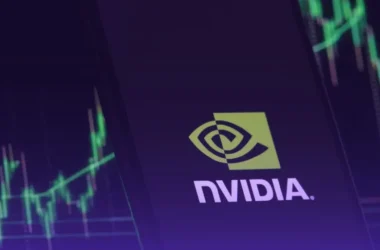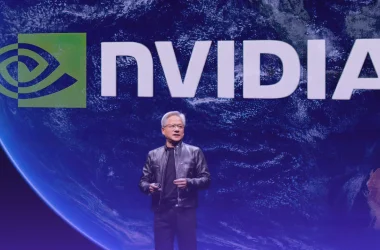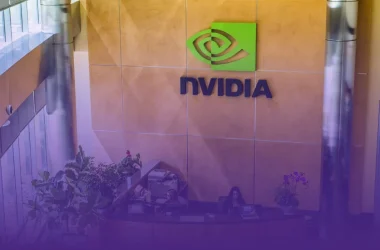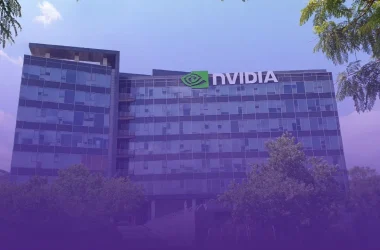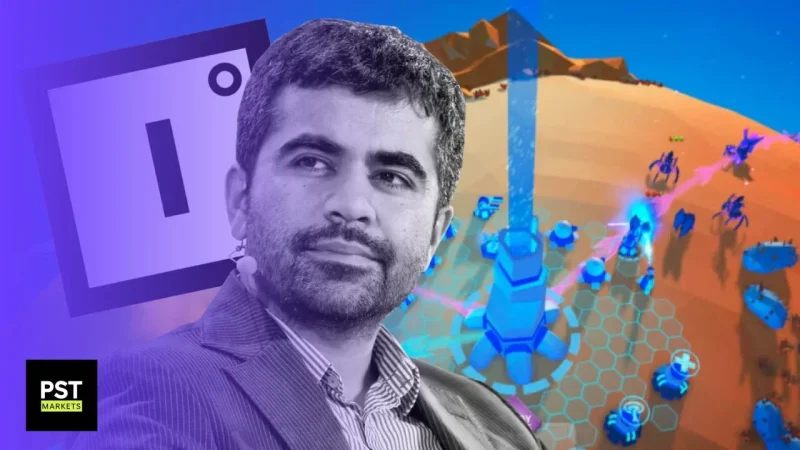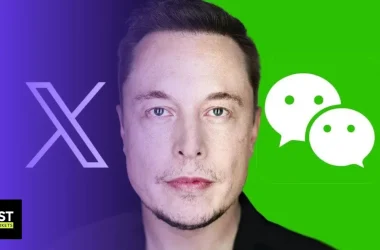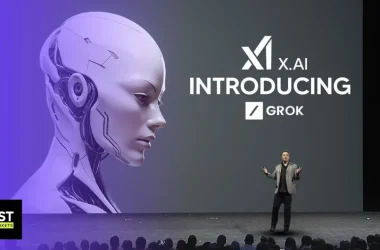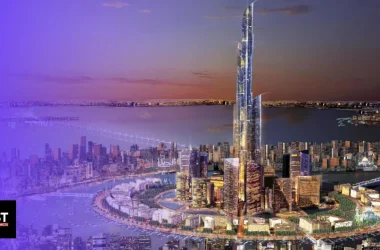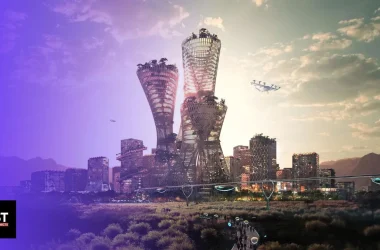Remember when everyone was talking about the metaverse? Well, metaverse news may have died out, but one metaverse maker is making headlines. Improbable Worlds Limited, a software company intent on taking gamers out of multiplayer games and into the metaverse, has just sold The Multiplayer Group (MPG) to Keywords Studios (LON: KWS), a video game industry services company.
The metaverse symbolizes the future of not just gaming, but everything. But does this deal between Improbable and Keywords represent a resurgence of the Metaverse?
Metaverse News
Improbable started off as a company that helped smaller video game teams create simulations or virtual worlds with greater scale and complexity. It had partnerships with studios like Bossa Studios but routinely faced issues with scaling the games.
Then the company moved into the defense sector, providing both the US and British militaries with war-gaming simulations. Throughout these business ventures, Improbable has meticulously created virtual worlds that were either an exact copy of our own or the fantasy world equivalent.
Softbank’s Backing
In 2017, things started to change for Improbable after Softbank led a Series B funding round in the company – investing $502 million. At this time, Improbable was only five years old, and with Softbank’s backing it was valued at more than $1 billion.
In the following years, the company made several acquisitions but acquired MPG in 2019 for £30 million. At the time, Improbable acquired MPG because it wanted MPG to develop better multiplayer experiences. MPG, a multiplayer games services company, would also benefit from Improbable’s cloud computing platform, SpatialOS.
Although the two companies were operating separately, amid hype for Facebook’s meta vision in 2022, Improbable’s CEO Herman Narula decided to pivot the company away from gaming and defense.
MPG began focusing on the metaverse while Improbable sold off its defense operations. From this point on, the company decided to use all the expertise from its gaming companies to help it develop its own metaverse.
This was a natural transition for Improbable which used huge data sets to create virtual worlds through its SpatialOS platform. These simulations were incredibly detailed and so its not surprising that Improbable saw an opportunity to not just mimic the real world, but create a whole new metaverse.
Into the Metaverse
Based on the timing of its transition towards the Metaverse, you wouldn’t be wrong to think that Improbable was just caught up in the Metaverse hype along with everyone else. But Improbable’s decision wasn’t based on an onslaught of metaverse news. Instead, its actions clearly show that the company believes the metaverse has a big future ahead of it – particularly in the gaming industry.
For many, the metaverse is the next logical progression from multiplayer gaming with 90% of US and British gamers believing that the metaverse will be accessible and populated within the next 10 years.
Narula believes that the metaverse is poised for growth, due to the convergence of gaming, VR/XR, and Web3 technologies. A good indication of Improbable’s long-term goals is Narula’s belief that consumers will prefer decentralized metaverse platforms as an alternative to platforms controlled by a central company or government.
With this in mind, one of Improbable’s ventures is M2 – an ecosystem of interoperable metaverses that enable mass scale virtual experiences through a shared digital asset economy. Narula has repeatedly cited video games like Roblox, Minecraft and Fortnite as examples of “incredibly successful” metaverses and it appears that M2 is Improbable’s bid to rival Microsoft and Meta’s metaverses.
M2 is powered by Improbable’s Project Morpheus which was revealed in October 2021. Essentially, Project Morpheus is just a series of ongoing software projects that will enable mass scale during gameplay and lower operating costs.
Using its technology from Project Morpheous, Improbable has hosted events like virtual Major League Baseball games and the “Otherside” metaverse developed in partnership with blockchain firm Yuga Labs. However, unlike Apple, Meta, and Microsoft which envision connecting users to the metaverse via headsets, M2‘s approach is desktop-based with an emphasis on creating decentralized metaverses.
Considering that the cost and adoption of headsets is one of the obstacles preventing a wider transition to the metaverse right now, this approach could pay off for Improbable. On the other hand, without the headsets users are missing out on the immersive virtual experience that competitors are pitching.
Why is Improbable Selling MPG?
Since its founding in 2012, Improbable has gone through several iterations whether that was defense, video games, or the metaverse. Its previous ventures were not very successful and given how quickly enthusiasm for the metaverse died off, Improbable could once again be in a tight spot.
Improbable sold off its Defense division in 2023 after its losses for 2021 reached £149 million. At the time, the company said that this division was the only unprofitable segment but its game “Nostos” was scrapped just 15 months after its launch in 2017. For a while its seemed that Softbank’s bet on Improbable was misguided, but its new focus on the Metaverse has supposedly paid off.
In 2022, Improbable recorded a loss of £19 million – an 85% cut from the year prior. The company credited its pivot towards the metaverse for almost doubling its revenues leading to its best financial year on record. The company’s situation was also improved by the divesture of its video game units – Inflexion Games and Midwinter Entertainment – as well as its defense unit.
Selling MPG could be the next logical step for the company as it focuses on M2 and accelerating its transition to metaverse ventures. Now that Improbable has gleaned all the information it can from MPG and its other video game ventures, it appears that the company will try to replicate the success of metaverses like Roblox, Minecraft, and Fortnite.
Using Morpheus and its SpatialOS as tools to host mass community and entertainment events, M2 has already launched the developer tools so that they can start building their own metaverses and objects. The next step will be the eventual release of its network of metaverses.
But, despite selling MPG just 4 years after acquiring it, it won’t be selling it at a loss.
MPG’s value has more than doubled from £30 million to £76.5 million and selling the venture now seems in line with Improbable’s philosophy of acquiring companies, learning from them, helping them grow, and then selling them off.
The Buyer
However, a seller needs a buyer, so why did Keywords decide to buy MPG?
Keywords Studios Plc. is an Irish video game company operating as a service provider for the industry. Despite remaining in operation since 1998, Keywords has been struggling lately with shares falling 39% this year and its EPS dropping as well.
However its fundamentals are impressive. Sales have more than doubled in the last four years and net income has increased YoY for the last 3 years, reaching $40.46 million in 2022. As a market leader, it is taking advantage of a larger downturn in the video game market by looking for acquisition opportunities.
Keywords has already taken on debt, spending around $100 million on acquisitions and could continue to add to its net debt as it explores opportunities in AI as well. Depending on how the company integrates its acquisitions into its existing framework, it could trigger renewed growth for the company down the line.
News of the acquisition triggered a 24% increase in the stock price, a sign of investors’ enthusiasm for Keywords’ expansion efforts.
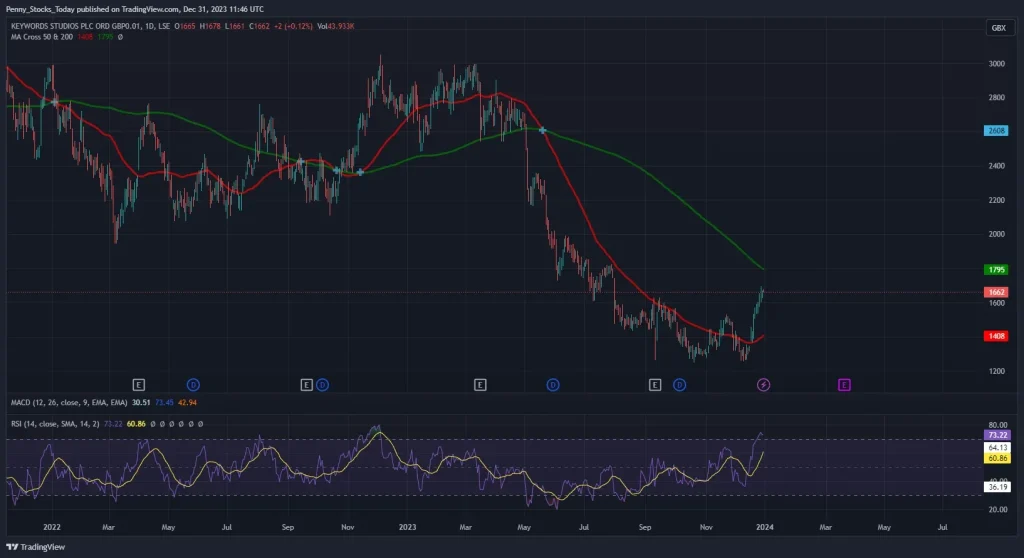
The Winner
One party benefiting from the sale of MPG is SoftBank. The investment company has been plagued by blunders, whether its FTX, WeWork, and Katerra. For the last few years, Softbank’s record investment in Improbable seemed to be a losing bet, but as the company reports improving financials and sells MPG for more than its purchase price, it appears the tide may be turning for Softbank.
Is the Metaverse Back?
Many companies, including Meta, failed to match the grandiose vision reinforced through new and exciting metaverse news. This combined with an inability to define real-life uses for the metaverse and potentially over-hyped enthusiasm from investors ultimately put the brakes on the metaverse. Not to mention, the abrupt downturn in the once flourishing NFT market also cautioned investors.
But as success stories like Improbable begin making metaverse news once again, we could see a resurgence in investor enthusiasm. Improbable was not put off by the downturn and its financials signal its improving outlook as it hones in on metaverse possibilities. While it will be some time before we see how this pivot truly works out for Improbable, its ambitions to go head to head with the likes of Meta and Apple in the metaverse arena could be a sign that metaverse news will be making headlines once again.
Disclaimer
Please visit and read our disclaimer here.

